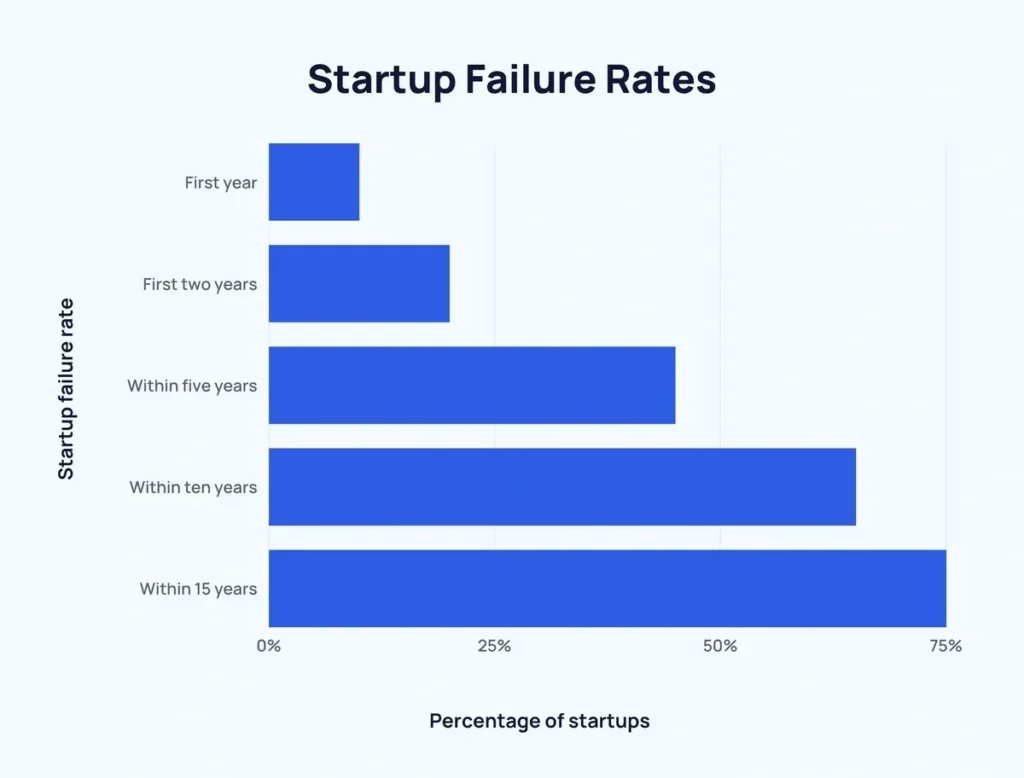
Here are some disturbing statistics. Did you know that…
- The failure rate for new startups is currently 90%?
- 10% of new businesses don’t survive the first year?
- First-time startup founders have a success rate of just 18%?
- 34% of small businesses that fail lack the proper product-market fit?
- 22% of startups that fail don’t have a sound marketing strategy?

Starting a business is like beginning an exciting journey. But the twist is, many startups don’t reach their desired destination. Let’s take a look at why this happens and the strategic measures to avoid a similar outcome.
1. Absence of Market Demand
Imagine creating something awesome… that nobody wants! That’s what happens to 42% of startups. It’s a bit like building snowmen in summer. The trick most startups need to learn is to stay flexible and always be prepared for changes and surprises.
Who remembers when everyone needed video calls because of the pandemic? Startups that can adapt quickly and offer value even under changing conditions are more likely to survive. A detailed market research is essential to understand the customers’ needs and demands.
2. Fierce Competition
It’s a battlefield out there in the startup world. To avoid being outperformed, founders must conduct comprehensive competitive research. Understanding your competitors and their target audience is crucial. Find your unique selling points, keep investing in research to stay competitive as your business grows. and play your own game with a unique twist.
3. Running Out of Money
Running out of money is one of the main reasons startups fail. Make sure your financial resources are well-managed and ensure people like what you’re offering. Startups often rely on investors, and a failure to secure additional funding can lead to disaster. Careful budgeting and smart allocation of resources are important.
How to be among the 10% who survive:
- Understand your market: Don’t try to please everyone. Instead, tailor your focus to a specific audience and cater to them.
- If you’re not a marketing wizard, consider outsourcing this critical aspect of your business.
- Set Goals: Know where you’re going with the startup and what you want to achieve.
- Research: Learn about your customers and what they want.
- Don’t Give Up: Sometimes, it gets tough. But that’s when you should work even harder!
In conclusion…
Test your idea, do your homework, and ensure your product is marketable before introducing it to the public. Most startups don’t make it, but that doesn’t have to be your story. Be among the 10% who resolve to succeed when things get tough.
Last but certainly not the least, Love what you do; it’ll show in your work.


